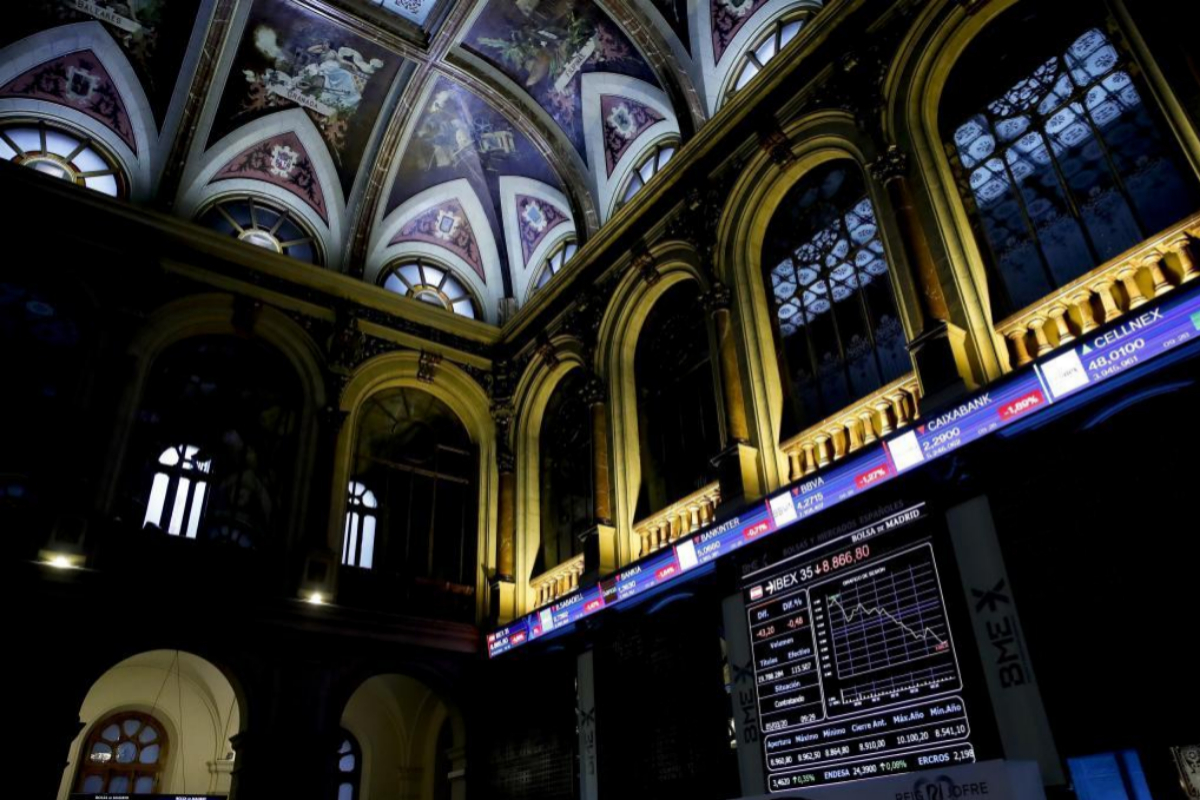- Direct Coronavirus, latest news
Spain and Italy, the two European countries most affected by the coronavirus health crisis, are beginning to register a slight but more or less sustained decrease in their contagion data, and the stock markets in the region have found in this relief a reason to hold on to. start to take a breath. That is why this Monday the main squares of the Old Continent maintain increases that in most cases exceed 3%.
The Frankfurt Dax is at the forefront of all, with an advance of more than 4%, while in Spain the Ibex 35 is around 3% and is close to 6,800 points. The increases are especially significant in the cases of Arcelor (+ 10.5%), IAG, MásMóvil or BBVA - which exceed 8.5% in all three cases - and Colonial , above 7%. In contrast, only Cellnex remains in negative territory, with a drop of 0.9%.
Investors are encouraged by a slowdown in the virus's spread and interpret that, if sustained, it could lead countries to downgrade economic containment and paralysis measures in the coming weeks.
In Spain, the President of the Government, Pedro Sánchez, announced last Saturday that the state of alarm will remain at least until April 26 , although a part of the non-essential activities could resume their activity from 11 this month.
Added to these expectations is the possibility that this week the European Council will be able to advance in the consensus to adopt measures of economic aid to the countries most affected by the disease.
Despite this, the Arcano investment team warns that "although there has been some normalization in the markets, the situation will continue to be very volatile. There is a deep need to accumulate cash, liquidity in secondary markets is still very meager and the volume generated by algorithmic trading (robots) will continue to generate strong volatilities in these environments. "
Meanwhile, liquidity injections from the European Central Bank (ECB) keep the risk premiums of countries such as Spain and Italy stable, which came to suffer before the announcement of those monetary aid plans. The Spanish sovereign premium is around 113 points in this session, with the yield on the 10-year sovereign bond at 0.71%, compared to -0.41% for the German bund that is taken as a reference.
Banking sector
Within the Ibex 35, the banking sector is one of the most supported by investors in this start of the week. Added to BBVA's rise are those of CaixaBank (+ 5.2%), Santander (+ 5.13%), Bankia (+ 4.6%), Bankinter (+ 3.6%) and Sabadell (+2, 9%).
The British entity Barclays has updated this Monday its valuations on Spanish banking, cutting its profit forecasts for 2020 (-48%), 2021 (-51%) and 2022 (-33%), given the instability of the macroeconomic environment and the uncertainty to make predictions about the sector. "In any case, the bank is betting on a recovery in the form of a" U "if the state of alarm lasts until June, since in this case the companies will see how demand is gradually restored," he points out in his analysis.
Barclays believes that the situation of bank capitalization is better than in previous crises, with higher capital and liquidity ratios that will mitigate potential losses, and also believes that revenues will remain strong thanks to the regulatory instruments of the ECB and the own government. "However, this assumption is in danger if the crisis continues and affects the quality of assets," he points out.
Among the Spanish entities, Barclays believes that Bankia will be the most affected by the crisis, followed by Sabadell , "due to its exposure to SMEs [small and medium-sized companies] and the issues arising from its British subsidiary TSB. On the contrary, it considers that CaixaBank , once the environment has normalized, "will recover its profitability" and that, in the case of Bankinter , "its position will give it a certain advantage in the coming years".
According to the criteria of The Trust Project
Know more- Markets
- Coronavirus
- Covid 19
Investment Stock markets barely flinch and fall again after latest Fed stimulus package
Markets Risk premiums rise 50% in one week and add pressure on another day of stock market declines
The final interview The doctor Javier Padilla: "The fear with the coronavirus is that you have to choose who to treat"

